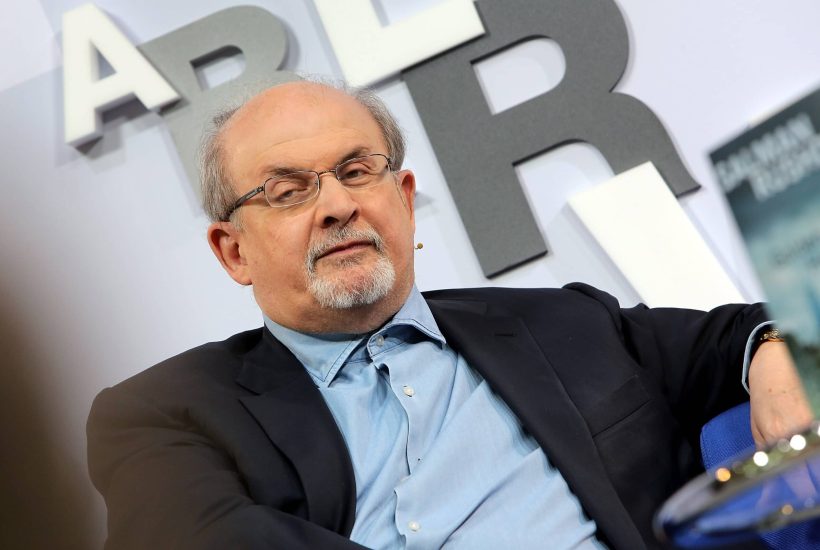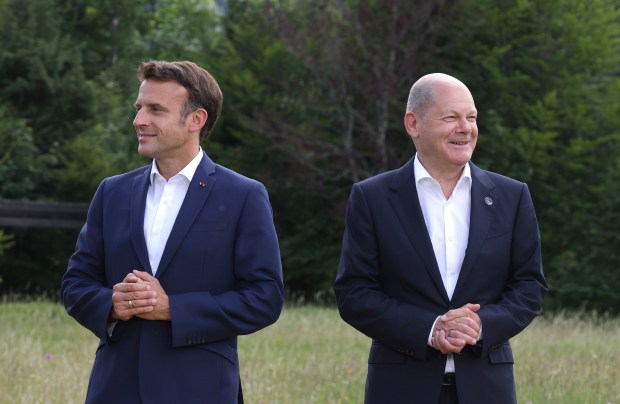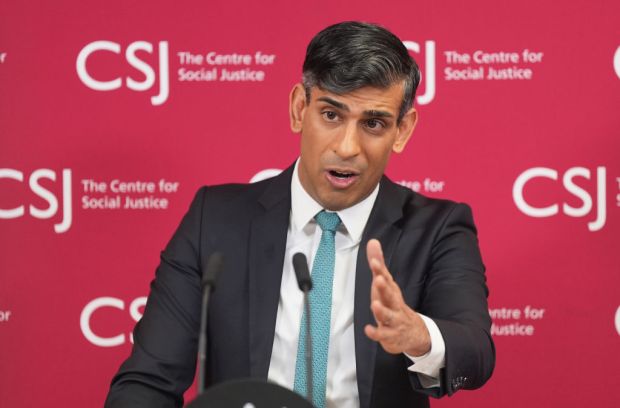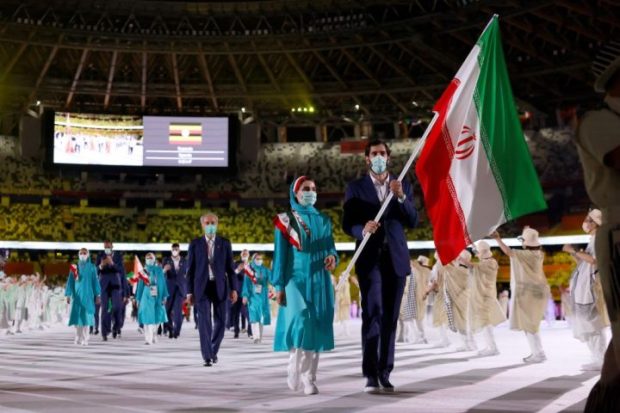If any further evidence was needed of the moral cowardice of the British political class it has been provided in the wake of the appalling attack on Salman Rushdie at the Chautauqua Institution.
There were of course messages condemning the atrocity in New York, although notably it took Sir Keir Starmer and Sir Ed Davey the best part of 24 hours to find the time to react. One might have expected the leaders of two of the three main political parties in Britain to consider such a sinister assault on Western values worthy of immediate comment.
From Mark Drakeford, the first Minister of Wales, and Nicola Sturgeon there has been only silence, although Scotland’s leader did tweet a photo of herself with Basil Brush on Saturday afternoon. She also retweeted a news article that said simply ‘Please let him ok.’
Boris Johnson reacted promptly to the news, saying he was ‘appalled that Sir Salman Rushdie has been stabbed while exercising a right we should never cease to defend’. But the Prime Minister didn’t elaborate on what the right was, nor why Rushdie’s defence of it resulted in his being stabbed multiple times.
The two people vying to replace Johnson as PM, Rishi Sunak and Liz Truss, were also trite in their response to the attack, as were Priti Patel, the Home Secretary and Nadine Dorris. ‘Horrifying,’ tweeted the Culture Secretary. ‘An awful attack on a literary giant and one of the great defenders of freedom of expression.’
Yes, but against whom was Rushdie defending the freedom of expression? This was a question no British politician has been courageous enough to answer. Contrast their pusillanimity with the unambiguous response of French politicians.
France is well used to such barbaric assaults on the freedom of expression, having experienced in recent years the slaughter of the staff of Charlie Hebdo, and the savage murder of Samuel Paty, the schoolteacher slain on a suburban street two years ago.
In both cases the assailants were Islamic extremists, ‘avenging’ in their minds the Prophet, and the French political class understood immediately the motivation for Friday’s attempted murder of Rushdie. They were also prepared to name it, while taking care to make the distinction between the religion and the political ideology that drives the violence.
Éric Ciotti of the centre-right Republicans spoke of his ‘immense emotion’ at the news of the attack on Rushdie, adding: ‘He is a symbol against Islamist barbarism, of the free world and of tolerance, as well as an immense writer’.
His words were echoed by Valérie Pécresse, the Republicans’ candidate in April’s presidential election, as they were by Marine Le Pen, leader of the right-wing National Rally, who spoke of ‘Islamist hatred’ and said that Rushdie ‘inspires all those who want to defend their civilisation and humanism against obscurantism’. Aurore Bergé, parliamentary president of Emmanuel Macron’s Renaissance party, described the British novelist as a’ global symbol of resistance to Islamist totalitarianism’.
On the left Fabien Roussel, the leader of the Communist party, offered his thoughts to Rushdie and his family and condemned ‘Islamist hatred’, and Olivier Faure, First Secretary of the Socialist Party, declared that ‘radical Islamists who think they can silence freedom of thought and writing’ will never prevail.
It is an oddity that British politicians have acted with bold resolve in their support of Ukraine against Russian aggression, yet they are institutionally spineless in confronting the barbarism of Islamic extremism, responsible for the deaths of more British citizens than Vladimir Putin.
In the aftermath of the Islamist attack on London Bridge in the summer of 2017 that left seven dead, the then PM Theresa May declared that Britain needed to have ‘difficult and often embarrassing conversations’ about Islamism. These have not materialised. On the contrary, so terrified have British MPs become of being labelled ‘Islamophobic’ (a concept rejected by most French politicians) that a culture of denial now reigns in Westminster. Witness the reaction to the murder last October of David Amess, stabbed to death in his surgery by an Islamist. The House couldn’t bring themselves to utter the ‘I’ word, instead laying the blame on ‘toxic’ social media.
Foreshadowing the risible reaction of the British political class, Charlie Hebdo published a sardonic editorial on Friday evening: ‘At the time of writing, we do not know the motive of the person who stabbed Salman Rushdie,’ it began. ‘Was he outraged by global warming, diminishing purchasing power or the ban on watering flower pots due to the heatwave?’
The cynicism of Charlie Hebdo is understandable. They – and France – remember how quickly the Anglosphere’s sympathy in the aftermath of the Islamist attack on their staff seven years ago evaporated. Three months after the atrocity several English-speaking authors objected to the satirical magazine receiving a freedom of expression award from PEN, a stance that was excoriated by Rushdie.
In a column for a Sunday newspaper the philosopher and author Bernard-Henri Lévy wrote that the best response to this ‘act of terror’ would be to award Rushdie the Nobel Prize for Literature.‘The campaign starts now,’ declared Lévy.
Has the West the courage to act so defiantly against Islamic extremism? France would undoubtedly back the proposal, but Britain? Don’t expect much support from a political class which remains pathologically incapable of naming the ideology responsible for Rushdie’s fate.
Got something to add? Join the discussion and comment below.
Get 10 issues for just $10
Subscribe to The Spectator Australia today for the next 10 magazine issues, plus full online access, for just $10.





















Comments
Don't miss out
Join the conversation with other Spectator Australia readers. Subscribe to leave a comment.
SUBSCRIBEAlready a subscriber? Log in